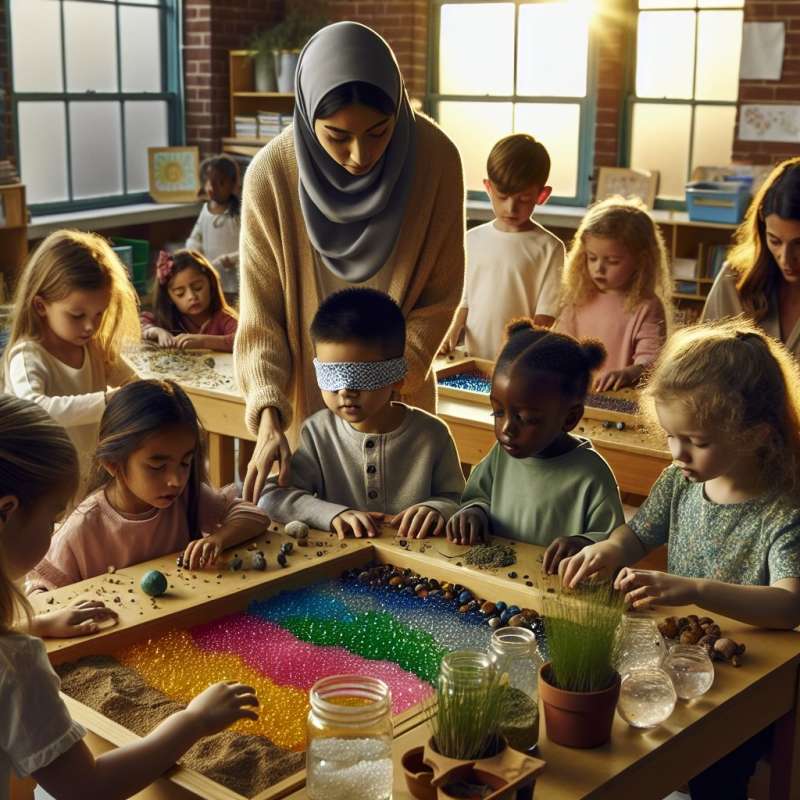
Defining Sensory Play
Sensory play includes activities that stimulate a child's senses: touch, smell, taste, sight, and hearing. It's vital for brain development, building neural connections through experiential learning.
Benefits Beyond the Senses
While enhancing sensory skills, such play also develops language, cognitive growth, fine and gross motor skills, problem-solving skills, and social interaction.
Engaging Multiple Senses
Activities engaging multiple senses simultaneously lead to more complex brain development. Children learning in multi-sensory environments retain information better than with singular sensory methods.
Sensory Play and Nature
Natural environments are rich in sensory stimuli. Exposing children to outdoors play can enhance sensory development and increase appreciation for environmental diversity.
Sensory Play and ADHD
Studies suggest sensory play helps manage ADHD symptoms by providing a constructive outlet for energy and improving focus and cognitive abilities.
Toys vs. Everyday Objects
While dedicated sensory toys exist, everyday objects can be equally effective. Items like rice, pasta, and water offer diverse sensory experiences and encourage imaginative play.
Incorporating Sensory Play
To incorporate sensory play, dedicate time for unstructured play daily. Use a variety of materials and settings, and allow children to explore at their own pace.
What is vital for brain development?
Learning mathematics early
Sensory play stimulation
Weekly sports activities
Company